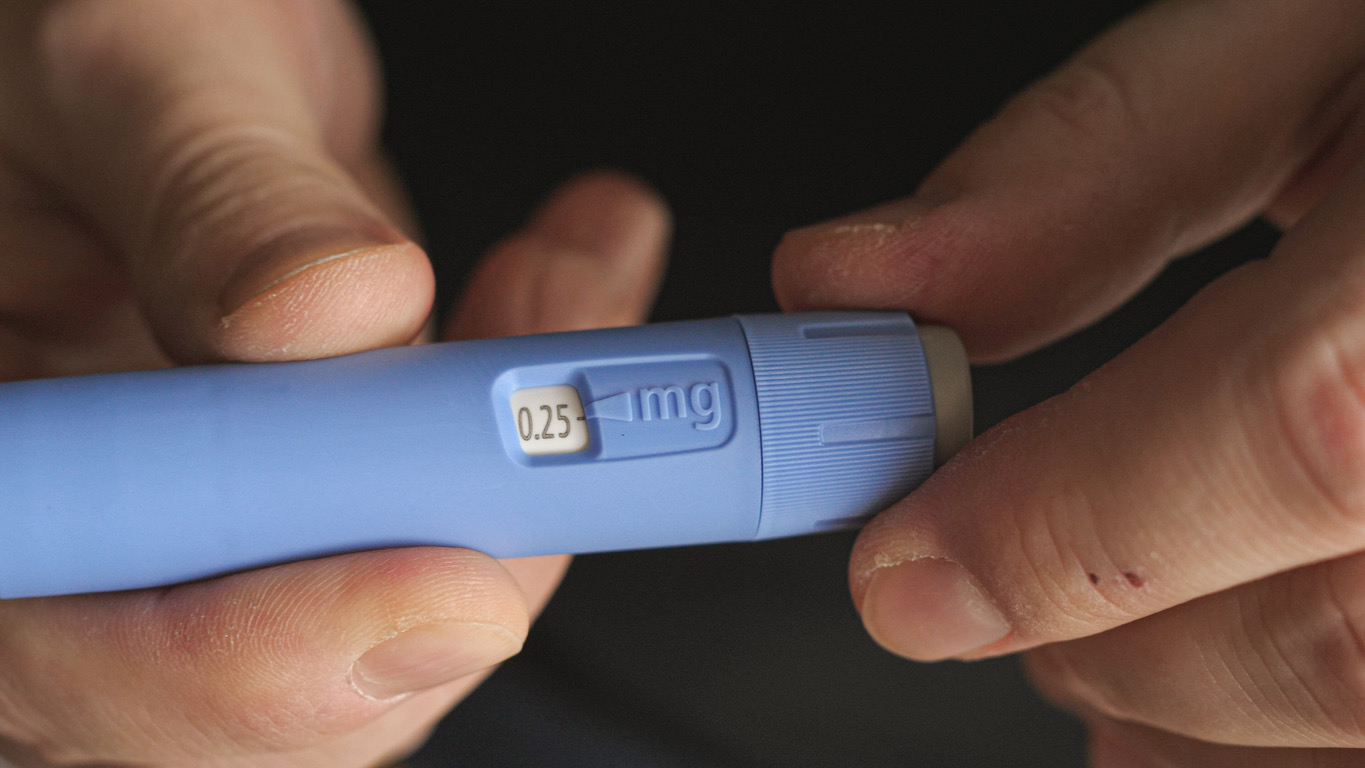Ozempic May Reduce Insulin Needs in People With Type 1 Diabetes
By April Hopcroft
 Early research suggests that people with type 1 diabetes who started semaglutide within three months of diagnosis were able to stop taking mealtime insulin.
Early research suggests that people with type 1 diabetes who started semaglutide within three months of diagnosis were able to stop taking mealtime insulin.
The benefits of Ozempic (semaglutide) continue to stack up for people with type 2 diabetes and obesity, with the latest data showing that it reduces heart disease and stroke in people with obesity who don’t have diabetes.
Semaglutide is also being studied for other conditions, such as fatty liver disease and addiction. However, people with type 1 diabetes have largely been left out of the conversation as there have been fewer studies on semaglutide as a treatment for type 1.
However, this could change in the coming years. New research suggests that semaglutide may in fact have benefits in early type 1 diabetes – specifically, the potential to reduce insulin needs.
What was the study testing?
This study looked at the effects of semaglutide on new-onset type 1 diabetes.
Most people with type 1 diabetes have some intact beta cells when they are first diagnosed, meaning that they may still produce insulin. A drug like semaglutide that could stimulate insulin secretion among the remaining beta cells might help people with newly diagnosed type 1 diabetes manage their glucose levels.
The researchers analyzed whether semaglutide, a GLP-1 agonist, could help reduce blood glucose. The study evaluated data that was previously collected from 10 adults, ages 21-39, who had started taking semaglutide within three months of their diagnosis. At diagnosis, all the participants were taking basal and mealtime insulin.
Participants had started taking 0.125 mg semaglutide per week, which was then adjusted to a maximum of 0.5 mg semaglutide per week, while mealtime insulin dose was lowered. The basal insulin dose was reduced based on continuous glucose monitoring (CGM) data.
What were the key findings?
Within three months, participants no longer needed mealtime insulin. At six months, seven out of 10 no longer needed basal insulin. That means the majority of people in the study were able to stop taking any insulin after six months of treatment with semaglutide.
Researchers also noted improvements in participants’ glycemic control. For example, A1C levels fell from an average of 11.7% at diagnosis to 5.9% at six months and 5.7% at one year, indicating that participants were in the prediabetes range. Participants also achieved a time in range of 89%.
In terms of safety, some participants experienced mild hypoglycemia (low blood sugar) while the semaglutide dose was increased. Once the semaglutide dose stabilized, there were no problems with hypoglycemia. There were no reports of diabetic ketoacidosis or other serious side effects.
The bottom line
This study shows possible benefits for semaglutide in new-onset type 1 diabetes – both to manage blood sugar and reduce insulin needs. Although the study size was small and not randomized, semaglutide may reduce blood glucose levels and eliminate the need for mealtime insulin in some people with type 1 diabetes.
Previous research has shown benefits of a similar GLP-1 drug, liraglutide, on glucose, weight, and insulin doses in larger samples of people with type 1 diabetes.
Another small study suggested that semaglutide may be beneficial for people with longstanding type 1 diabetes. Among 10 adults who had type 1 diabetes for an average of 20 years, semaglutide led to 14% weight loss over six months. Beyond weight loss, participants saw a 25% reduction in daily carbohydrate intake and a 26% reduction in insulin doses per day at six months.
Going forward, a larger, better-designed randomized study will be needed to understand the full picture of the safety and efficacy of semaglutide in type 1 diabetes.
Learn more about adjunctive therapies for type 1 diabetes:







